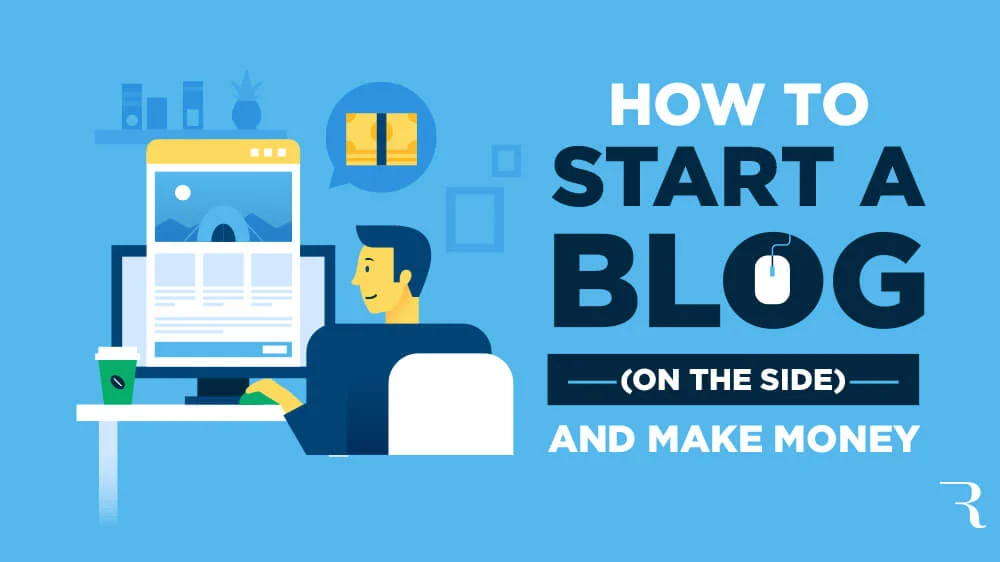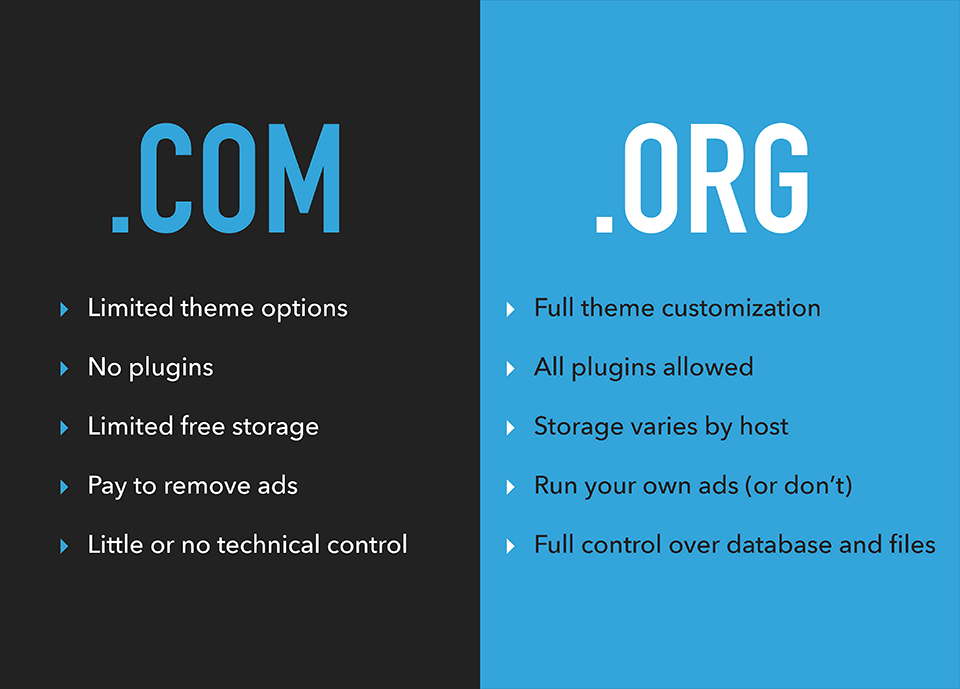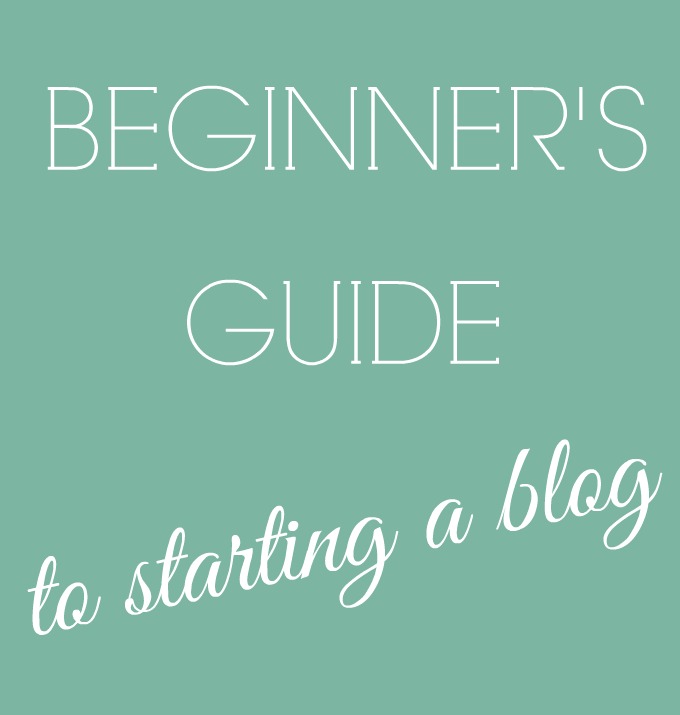
Blogging has become an increasingly popular way for people in Ghana and around the world to share their thoughts, ideas, and experiences with a wider audience. If you’re interested in starting a blog in Ghana, there are a few key steps that you’ll need to take in order to get your blog up and running.
Lets begin by understanding what a blog is.
What is a blog?
A blog, short for “weblog,” is a website or portion of a website where an individual or organization writes about topics of interest. Blogs can be personal, professional, or focused on a particular subject, and they are typically maintained by an individual with regular entries of commentary, descriptions of events, or other material such as graphics or video. Entries are commonly displayed in reverse-chronological order. Many blogs provide commentary or news on a particular subject; others function as more personal online diaries. A typical blog combines text, images, and links to other blogs, web pages, and other media related to its topic. Most blogs are primarily textual, although some focus on art (art log), videos (vlog), music (MP3 blog), and audio (podcasting). As of 2009, blogging had become such a mania that a blog has been defined as “a website where a person writes about personal opinions, activities, and experiences.” The ability for readers to leave comments in an interactive format is an important part of many blogs. Most blogs are primarily written in informal language, and almost all are primarily textual in nature. Blogs have been used for a wide variety of purposes, and there are literally millions of them in existence. They can be used for personal, business, or political purposes, and there are also many academic blogs.
Who is a blogger?
A blogger is an individual who creates and manages a blog. Bloggers typically write about topics that they are interested in or have expertise in, and they use their blogs as a platform to share their thoughts, ideas, and information with their audience. Bloggers may write about a wide variety of subjects, including personal experiences, current events, news, politics, technology, entertainment, and more. Some bloggers make a career out of blogging, while others use it as a hobby or a way to share information with a specific community. Bloggers use a variety of tools, such as text editors and social media, to create and publish their content. They also promote their blogs through various channels such as search engine optimization and social media marketing. Bloggers can also earn income by displaying ads or sponsored content on their blog, affiliate marketing, or creating a product or service to sell. Blogging has become a profession and a source of income for many people who have built a large following or reach on their blogs.
How to start blogging in Ghana
Step 1: Choose a blogging platform
The first step in starting a blog is to choose a blogging platform. There are many different platforms available, but some of the most popular options for bloggers include WordPress, Blogger, and Wix. Each of these platforms has its own set of features and capabilities, and it’s important to choose the one that best suits your needs.
WordPress, for instance, is a content management system (CMS) that is often considered the most powerful and flexible of all blogging platforms. It is an open-source platform and it offers a wide range of options for customizing the look and feel of your blog, and you can easily add new features and functionality using plugins. Blogger, on the other hand, is a simpler platform that is owned by Google. It’s a great option for beginners, as it is easy to use and requires minimal technical knowledge. Wix is another drag-and-drop website builder that is also a great option for beginners. It offers a wide range of templates and design options to help you create a professional-looking blog quickly and easily.
Step 2: Choose a domain name
Once you’ve chosen a platform, the next step is to choose a domain name. Your domain name is the address that people will use to find your blog (e.g, http://legonconnect.com). When choosing a domain name, it’s important to keep in mind that it should be easy to remember, easy to spell, and easy to type.

It’s a good idea to use a .com, .net or .org extension, as these are more likely to be recognized and remembered by your audience. Also, you can use Ghana’s country code top-level domain (ccTLD) like .gh to show that the blog is Ghanaian. However, these are often more expensive than other options and the availability of a good domain name may be limited.
Step 3: Choose a hosting provider
A hosting provider is a company that provides a service for hosting your blog on the internet. There are many hosting providers available, but some of the most popular options for bloggers include Bluehost, HostGator, and SiteGround. Each of these providers offers a variety of different hosting plans that are designed to meet the needs of different types of bloggers.
When choosing a hosting provider, it’s important to consider the amount of storage space, bandwidth, and support that is included with each plan. You’ll also want to look for a provider that offers a user-friendly control panel, easy-to-use file management tools, and a reliable uptime guarantee.
Step 4: Set up and customize your blog
Once you’ve chosen a platform, domain name, and hosting provider, you can set up and customize your blog to suit your preferences and needs. This can include choosing a template or theme, customizing the layout and design of your blog, and adding new features and functionality using plugins.
When setting up your blog, it’s important to pay attention to the little details, like creating a logo, picking colors that match your niche, creating pages like “about us” and “contact us” etc.
Step 5: Start creating content
Once your blog is set up, you can start creating and publishing content. This could be anything from blog posts to videos, to photos, to podcasts.
How to monetize a blog in Ghana
once you done with the process of starting a blog is up and running, you can make money out of it by running some form of ads. This is generally called blog monetization. There are several means to monetize a blog in Ghana. We will be discussing them all but our main focus is going to be on Google AdSense monetization. I am more concerned about Google AdSense Monetization because it is widely used by bloggers.
Here are some general ways to monetize a blog in Ghana:
- Advertising: You can sell ad space on your blog to businesses looking to advertise their products or services.
- Affiliate marketing: You can earn a commission by promoting other businesses products or services on your blog and linking to them with an affiliate link.
- Sponsored posts: You can be paid to create content for businesses on your blog, usually in the form of a sponsored post.
- Product reviews: you can get paid by companies to review their product on your blog
- Selling your own products or services: If you have your own products or services to sell, you can use your blog as a platform to promote them.
It is important to note that for some of these monetization techniques may need your blog to have good traffic and an engaged audience to be attractive to companies. Additionally, it is important to ensure that you comply with laws and regulations regarding advertising and disclosure in Ghana.
How to monetize a blog in Ghana using Google AdSense
Google AdSense is one of the most popular ways to monetize a blog in Ghana. AdSense is a program from Google that allows website and blog owners to earn money by displaying ads on their sites. The ads are targeted to the content of the website or blog, so they are more relevant to the visitors and more likely to be clicked on. Here is a step-by-step guide on how to monetize your blog in Ghana using Google AdSense:
- Create a Google AdSense account: To start using AdSense, you’ll need to create an account. Go to the AdSense website and click the “Sign Up Now” button. You’ll need to provide some basic information, such as your email address and website URL, and agree to the terms of service.
- Add the AdSense code to your blog: Once your account is set up, you’ll need to add the AdSense code to your blog. To do this, you’ll need to log into your AdSense account, and then select “My Ads” from the navigation menu. From there, you can create and customize ads to match your website’s design and layout.
- Place the ads on your blog: After you’ve created your ads, you’ll need to place them on your blog. This can be done by adding the AdSense code to the HTML of your blog’s template. It’s important to place the ads in locations where they will be seen by your visitors, such as in the header, sidebar, or after the post.
- Monitor your earnings: Once your ads are live, you can monitor your earnings in your AdSense account. You can also see your earnings by country, ad format, and more, helping you understand which ads are performing best.
- Additional Tips:
- Adsense works by displaying ads that match the content of your blog, so it is important that you create high-quality content that is engaging and informative.
- Keep the Adsense policies in mind, avoid using prohibited content such as adult content or copyrighted material
- It may take a few weeks before you start seeing any significant earnings from AdSense, so don’t be discouraged if you don’t see any money right away.
Google AdSense is a great way to monetize a blog in Ghana, as it’s a simple and easy way to earn money with your blog. By following these steps, you can start earning money with your blog and grow your income over time.
Some common blogging terms for beginners
Blogging is a rapidly growing medium that allows individuals to share their thoughts, ideas, and information with a wide audience. As with any industry, blogging has its own set of terms and jargon that can be confusing for beginners. In this article, we’ll go over some of the most common terms you’ll encounter as you start your own blog.
- Blogging Platform: A blogging platform is a website that allows you to create and manage your blog. Some examples of popular blogging platforms are WordPress, Blogger, and Medium.
- Domain Name: A domain name is an address that people use to find your blog, such as “example.com”. It’s important to choose a domain name that is easy to remember and relevant to your blog’s content.
- Hosting: Hosting is the service that allows your blog to be accessible on the internet. When you choose a hosting provider, you’re essentially renting space on a server where your blog’s files will be stored.
- SEO (Search Engine Optimization): SEO is the process of optimizing your blog’s content and technical elements to make it more visible in search engine results. This includes things like using keywords, meta tags, and creating a sitemap.
- Content: The articles, images, videos and other information you put on your blog, is called the content. This is the main attraction of your blog which keeps the audience engaged.
- Blog Post: A blog post is a single entry or article on your blog. Each post typically includes a title, content, and an image or video.
- Comments: Comments are a way for readers to leave feedback on your blog posts. Many blogging platforms allow readers to leave comments directly on your blog, and you can moderate or reply to them.
- Categories: Categories are a way to organize your blog’s content. Each post can be assigned to one or more categories, making it easy for readers to find related content.
- Tags: Tags are keywords or phrases that are associated with a specific blog post. They can help readers find related content and also help with SEO.
- Widgets: Widgets are small blocks of code that can be added to the sidebar or footer of your blog. These can include things like social media icons, recent posts, and search boxes.
- Analytics: Analytics is the process of measuring and analyzing data about your blog’s traffic and readers. This information can help you understand how people are engaging with your blog, and can help you make better decisions about your content and promotions.
- RSS (Really Simple Syndication): RSS is a format that allows users to subscribe to your blog’s content, so they can be notified when you publish new posts.
- Blog Roll: Blog roll is a list of other blogs that you like and recommends to your readers. It’s a great way to network with other bloggers and promote your blog.
- Backlink: Backlink is a link from another website to your blog. They are important for SEO and can also bring traffic to your blog.
- Monetization: Monetization is the process of earning money from your blog. This can include things like displaying ads, affiliate marketing, and sponsored content.

By understanding these common terms, you’ll be better equipped to navigate the world of blogging and build a successful blog of your own.
How much does it cost to start a blog in Ghana
The cost of starting a blog in Ghana can vary depending on a number of factors, such as the type of blog you want to create, the features and functionality you want to include, and the resources you have available.
Here are some common costs that you might incur when starting a blog in Ghana:
- Domain name: A domain name typically costs around $10 – $15 per year.
- Hosting: Hosting is required to make your blog accessible on the internet. Hosting packages in Ghana can range from around $10 to $50 per month, depending on the provider and the type of hosting you choose.
- Blogging Platform: Some popular blogging platforms like WordPress, Blogger and Medium are free to use, but some advanced functionalities, like custom themes, would require an additional cost.
- Design and development: If you decide to hire a professional to design and develop your blog, the cost can vary widely depending on the complexity of the design and the number of features you want to include.
- Maintenance and Upkeep: After your blog is up and running, you may need to spend money on things like updates, backups, security, and technical support.
Overall, one can expect the cost of starting a blog in Ghana to be relatively low, with the initial costs likely to be less than $100 for a basic blog. However, as you add more features, increase traffic or want to monetize your blog, the cost may increase. It is worth noting that if you do a proper planning, research, and choose the right option, you can start a blog with minimal cost and potentially make money from it.